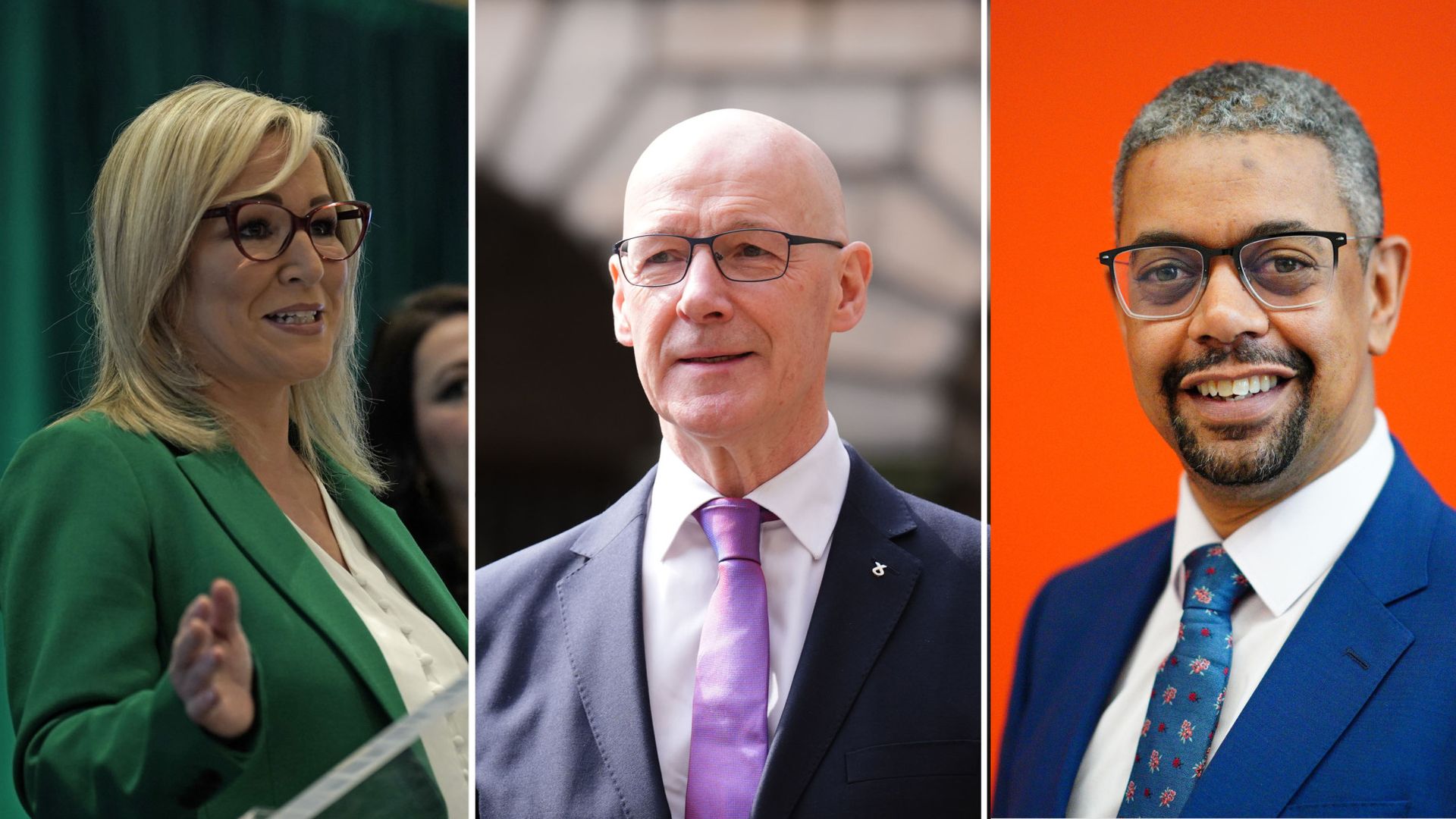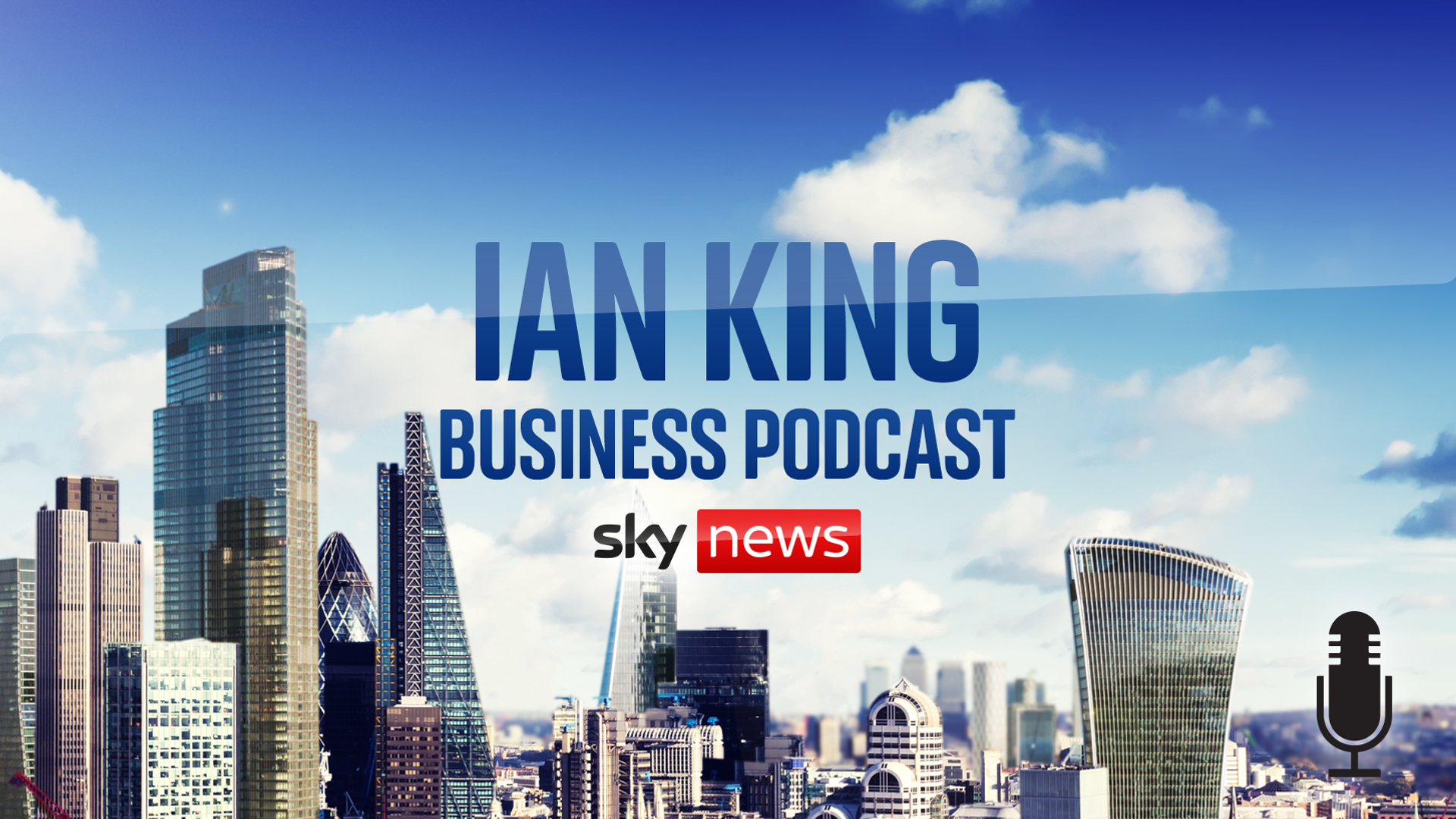There is always a danger that elections in the UK become too Westminster-focused.
But in the devolved nations, there are critical votes to be won – and politicians facing their own issues.
Sunak ditches jacket for first rally – politics latest
Here is what is happening in Northern Ireland, Wales, and Scotland – and what it could mean on 4 July.
Underestimate Northern Ireland at your peril
David Blevins, senior Ireland correspondent
Northern Ireland has only 18 MPs but underestimate their significance at your peril.
In 2017, the DUP found itself holding the balance of power in a hung parliament.
But the biggest Unionist party is under pressure in at least three constituencies.
Its former leader, Sir Jeffrey Donaldson, has held Lagan Valley for 27 years but won’t run this time.
He was charged with historical sex offences in March. Donaldson said he would be strenuously contesting the charges in his resignation letter.
Gavin Robinson, the interim leader, will be under pressure if Alliance leader Naomi Long stands in East Belfast.
Already the largest party at Stormont, there’s potential for Sinn Fein to win the greater number of seats at Westminster.
In that scenario, Northern Ireland would have more seats empty than occupied in the Commons.
Sinn Fein MPs are elected on an abstentionist ticket, refusing to pledge allegiance to the British crown.
Relief for Labour in Wales
Tomos Evans, Wales reporter
The announcement could not have come at a better time for Welsh Labour, who have faced a difficult few weeks.
During the few months Vaughan Gething, the first minister, has been in post, he’s faced questions over a controversial £200,000 donation to his campaign from a man convicted of environmental offences.
Last week, he sacked a minister for an alleged leak and Plaid Cymru pulled out of an agreement it had with the Labour government on dozens of policies.
Labour, though, are a well-oiled electoral machine in Wales. They’ve won every single election in the Senedd – the Welsh parliament – since the first vote in 1999.
Mr Gething will hope the upcoming Westminster election will unite the party after a turbulent time.
He welcomed the announcement on Wednesday and accused the Conservatives of being “hauled up” in Downing Street.
The Welsh government has had a strained relationship with Westminster in recent years.
Please use Chrome browser for a more accessible video player
They’ve blamed what they described as the most difficult financial backdrop since the dawn of devolution on Westminster funding cuts.
There isn’t a PMQs that goes by, though, where Rishi Sunak doesn’t refer to Labour’s record in Wales, particularly on NHS waiting lists.
But issues such as health and education are devolved to Wales, so a change of government in London won’t directly bring about change here in those areas.
But Welsh Labour argues that more funding from a Labour government in Westminster would mean they could invest more in public services right across the country.
It will be the first electoral test, too, for Plaid Cymru leader Rhun ap Iorwerth who only took up the job last summer.
Mr ap Iorwerth said only Plaid would “put Wales’s best interests first” and accused the Tories of having “crashed the economy” and Labour of “taking Wales for granted”.
Welsh Conservative leader Andrew RT Davies said Labour “cannot be trusted” to run the UK based on the party’s “record in Wales”.
The parties in Wales will be contesting 32 seats. That’s down from 40 in 2019, after a review of constituency boundaries.
Labour will be eyeing gains in Scotland
Sadiya Chowdhury, news correspondent
You can look at Scotland like one big swing state for Labour.
Of the 650 seats contested at a general election, 57 are here.
Labour was the dominant party before 2015, when the Scottish National Party (SNP) came in on the issue of independence and swept up almost all the seats.
Then in 2019 – off the back of Brexit and as SNP dominance grew – Labour was left with just one seat (down from 41 before 2015).
Read more:
Sunak has turned out to be a gambler
Royal Family postpones engagements
Keep up with all the latest news from the UK and around the world by following Sky News
But the SNP isn’t today what it was then – with their third leader in just over a year, party infighting, and a recent split with the Greens which led to the toppling of former leader Humza Yousaf.
Even the issue of independence is no longer as promising as it once was.
The SNP has fundraised for, but not delivered a second referendum. And last year a UK court ruled any vote on the issue has to get approval from the government in Westminster first.
So, while support for independence is still high, voters are likely to decide their vote on issues largely the same as the rest of the UK: cost of living, the state of the NHS, economic issues, climate change.
Be the first to get Breaking News
Install the Sky News app for free
Do you remember the SNP member who went on a train with COVID? Margaret Ferrier’s suspension last October triggered a by-election in which Rutherglen and Hamilton West went back to Labour.
Scottish Labour leader Anas Sarwar called it a turning point for Scottish politics. Labour thinks 28 seats are now “in play”.
You’d be wise not to set your projections on just one result. But consider this: two days ago, a YouGov poll put Labour ten points ahead of the SNP.





